There were fires burning and a haze of smoke hanging in the air above the host. Bonus and Sergius could see many tents further off, and seemingly endless numbers of horses and men, milling around like so many busy ants far below.
This was the army of the Avars, long-standing enemies of the Byzantine Empire. They had come at last to take the great city which still called itself the capital of the Eastern Roman Empire, but they were a people who fought from horseback. They were mobile, lightly armoured and swift, and they were unused to siege warfare. To storm the walls of Constantinople they would need allies in war. These they found in Byzantium’s other old enemy, the Persian Sassanid Empire.
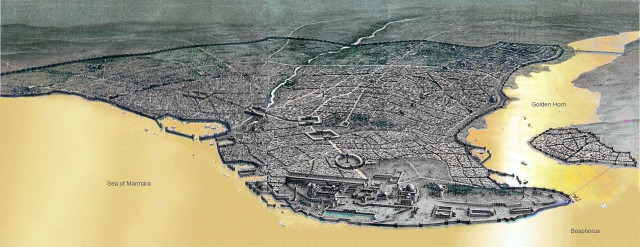
When Bonus and Sergius looked out from the walls at their embattled enemy the siege had been underway for ten days. Every day the Avars had pelted the walls with endless barrages of stone. At many points up and down the walls, they probed, testing the strength of the defenders. Every day they attacked somewhere new, flinging up ladders and grappling hooks and rolling towers up to the walls, but every time the defenders repelled them.
The Byzantine soldiers were heavily armoured and highly trained, with keen spears, long shields and coats of gleaming flexible armour which reached down past their knees. They fought with discipline and order against the waves of attackers, and they fought with the determination of those who have nowhere to retreat to if their line fails. Again and again, the hoards of the Avar broke on the great walls of Constantinople like waves on a high sea cliff.
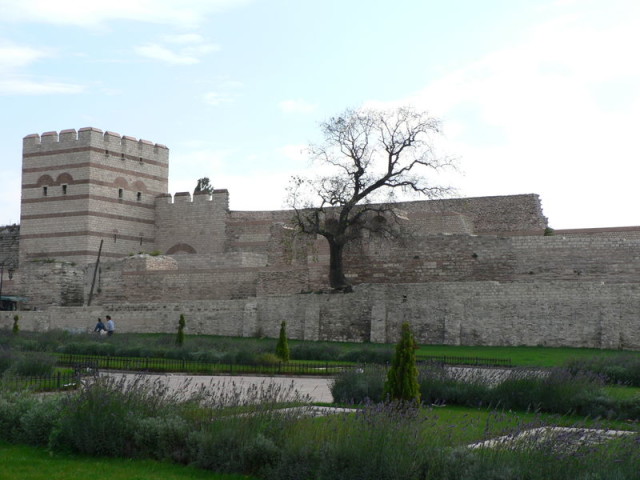
They battered the walls at all points with their shot but this did little damage. They tried to overwhelm the defenders with by force of numbers, but they did not succeed. What Bonus feared was an assault in force on both sides of the city at once, so he sent out spies and scouts under cover of darkness to bring back reports of the situation in the East.
The reports came back quickly. Sure enough, on the other side of the Bosphorus was the host of the Persians, waiting to cross the strait and attack the eastern side of the city. They were awaiting a signal. The Avars were to light a great bonfire when the time was ripe to strike. Bonus laid his plans.
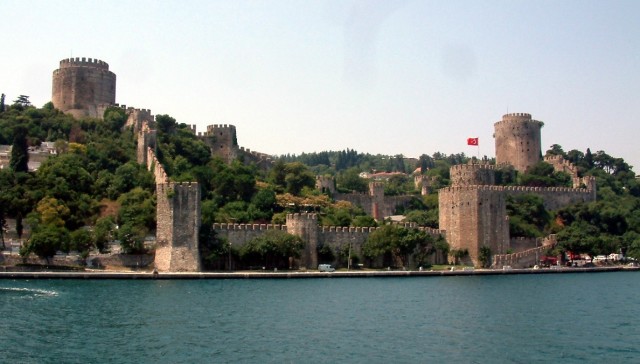
On a high hill in the north of the city, a great bonfire had been built, and as the battle raged along the western wall it was lit. The Persian army took it as their signal to cross, but the Byzantine navy which lay at anchor in the Golden Horn slipped out and sailed north up the Bosphorus as the Persians began to cross. There was a vicious naval engagement.
The Persians were crossing on many barges and little boats, in great numbers, and the Byzantine ships sped to meet them in mid-crossing. Huge clouds of fire arrows sped through the air. The barges, rafts and floats were rammed, surrounded, burned and sunk by the Byzantine galleys. It did not take long for the wide Bosphorus to become choked with debris and burning wreckage as hundreds of ships fought to the death.
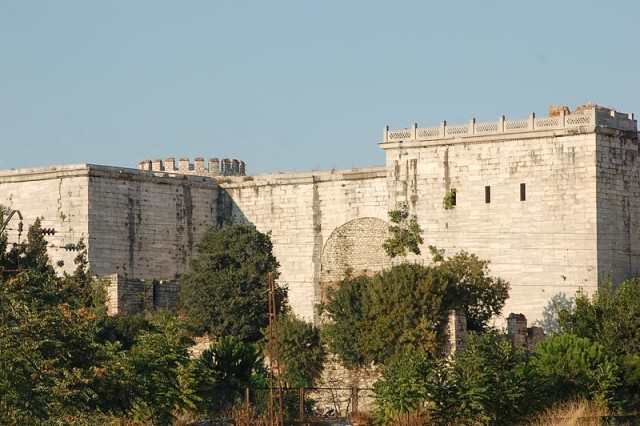
The catapults flung stones which bounced ineffectually off the high stone walls and landed back among the attackers. Ladders were raised only to be flung back down when men had almost reached the top. The assault was hindered by its own cumbersome size, and a wave of doubt ran through the attackers.
Then the news arrived on both sides. The Persians had been foiled in their attempt to cross. There would be no assault on the eastern wall of the city. The attackers were distraught, but the defenders burst into fierce and joyful singing. All at once, as if by unspoken agreement, the crowd at the gate began to withdraw, then to flee. Their siege engines, towers, rams and catapults, were burning. The Avar dead carpeted the ground before the Golden Gate of Constantinople. The siege was broken, and the Avars never again threatened the great capital city of Byzantium.
-by Barney Higgins

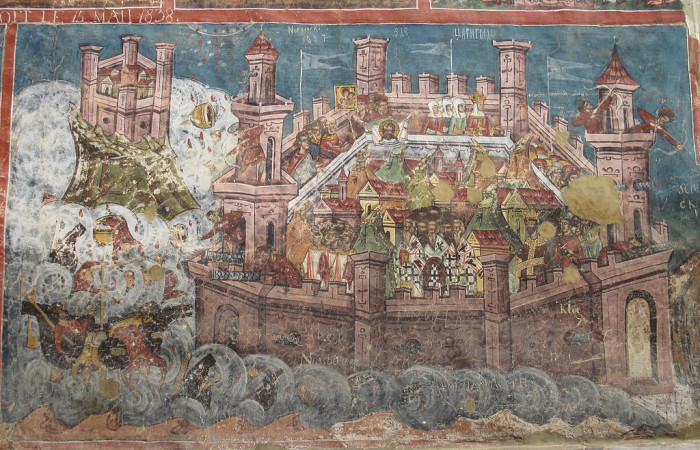
Δεν υπάρχουν σχόλια:
Δημοσίευση σχολίου